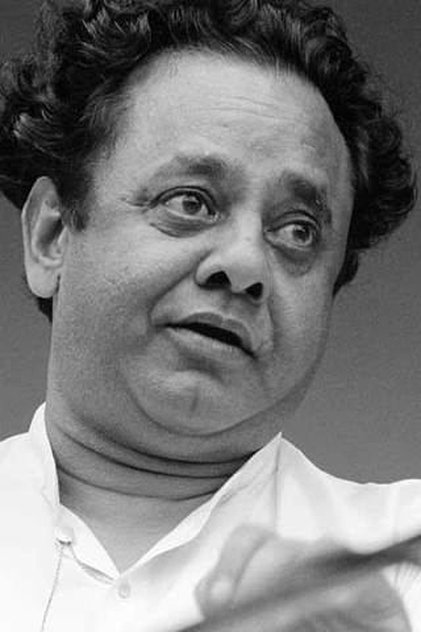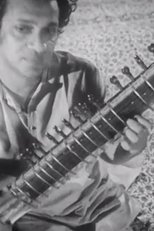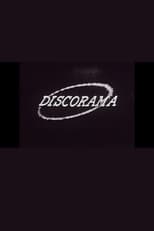

Alla Rakha
Born: April 29, 2019
Died: February 3, 2000
in Paghwal, Jammu and Kashmir, British India
Died: February 3, 2000
in Paghwal, Jammu and Kashmir, British India
Ustad Alla Rakha Qureshi (29 April 1919 – 3 February 2000), popularly known as Alla Rakha, was an Indian tabla player who specialized in Hindustani classical music. He was a frequent accompanist of sitar player Pandit Ravi Shankar and was largely responsible for introducing Tabla to the western audience.
Ustad Allarakha Khan Qureshi (29 April 1919 – 3 February 2000) was born in Ghagwal Village (in today’s district Samba) Jammu, Jammu and Kashmir. His mother tongue was Dogri and his family were Muslim Dogras, although most of the Dogra clan around them were Hindus. Growing up on a farm, Ustad Allarakha was always in awe of music, praising the traveling musicians he would occasionally have the opportunity to witness. His father, at that time, looked down upon singing or learning to play a musical instrument as a profession for his boy, due to family's origins as Dogras of Jammu.
At the age of 12, Ustad Alla Rakha ran away from home to stay with his uncle in the nearby Gurdaspur city to pursue his passion for music. Finding little chances for grooming and appreciation, the determined young lad ran away from home, began his training in tabla with Mian Kader Baksh of the Punjab gharana of tabla players. Mian Kadir Bakhsh, who had no sons, formally adopted Alla Rakha and called him the next head of the Punjab gharana of tabla players.
He also took vocal training in classical music and Raag Vidya under Ustad Ashiq Ali Khan of the Patiala gharana. His regimen of practice and dedication were legendary: hours upon hours of hard, disciplined practice, that would later pay off. In 1943, he started working for Bombay film industry, also known as Bollywood these days, and composed music for nearly two dozen films of Hindi and Punjabi languages.
He was married to his cousin Bavi Begum and their marriage produced three sons, Zakir Hussain, Fazal Qureshi and Taufiq Qureshi; two daughters, Khurshid Aulia née Qureshi and Razia; and nine grandchildren. They all survived him except Razia; it was the news of her death the day before that is thought to have caused his fatal heart attack.
Allah Rakha had a third daughter named Roohi Bano who was born in Pakistan and achieved a "legendary" status in television and film acting.
Ustad Allarakha Qureshi began his career as an accompanist in Lahore and then as an All India Radio, Delhi staffer in 1936 but later moved to Bombay in 1940, playing the station's first ever tabla solo and elevating the instrument's position in the process. Soon after, he also started composing music Hindi films under the name A. R. Qureshi. He composed for a total of 23 films between 1943 and 1964.
However, he still played as an accompanist, for soloists like Bade Ghulam Ali Khan, Allauddin Khan, Vilayat Khan, Vasant Rai, Ali Akbar Khan, and Ravi Shankar. The venerable master achieved world renown as Shankar's chief accompanist during his apex in the 1960s, delighting audiences in the West with his percussive wizardry, not only as an uncanny accompanist with flawless timing and sensitivity but also as a soloist where he was a master of improvisation, a prolific composer and an electric showman.
Source: Article "Alla Rakha" from Wikipedia in English, licensed under CC-BY-SA 3.0.
Ustad Allarakha Khan Qureshi (29 April 1919 – 3 February 2000) was born in Ghagwal Village (in today’s district Samba) Jammu, Jammu and Kashmir. His mother tongue was Dogri and his family were Muslim Dogras, although most of the Dogra clan around them were Hindus. Growing up on a farm, Ustad Allarakha was always in awe of music, praising the traveling musicians he would occasionally have the opportunity to witness. His father, at that time, looked down upon singing or learning to play a musical instrument as a profession for his boy, due to family's origins as Dogras of Jammu.
At the age of 12, Ustad Alla Rakha ran away from home to stay with his uncle in the nearby Gurdaspur city to pursue his passion for music. Finding little chances for grooming and appreciation, the determined young lad ran away from home, began his training in tabla with Mian Kader Baksh of the Punjab gharana of tabla players. Mian Kadir Bakhsh, who had no sons, formally adopted Alla Rakha and called him the next head of the Punjab gharana of tabla players.
He also took vocal training in classical music and Raag Vidya under Ustad Ashiq Ali Khan of the Patiala gharana. His regimen of practice and dedication were legendary: hours upon hours of hard, disciplined practice, that would later pay off. In 1943, he started working for Bombay film industry, also known as Bollywood these days, and composed music for nearly two dozen films of Hindi and Punjabi languages.
He was married to his cousin Bavi Begum and their marriage produced three sons, Zakir Hussain, Fazal Qureshi and Taufiq Qureshi; two daughters, Khurshid Aulia née Qureshi and Razia; and nine grandchildren. They all survived him except Razia; it was the news of her death the day before that is thought to have caused his fatal heart attack.
Allah Rakha had a third daughter named Roohi Bano who was born in Pakistan and achieved a "legendary" status in television and film acting.
Ustad Allarakha Qureshi began his career as an accompanist in Lahore and then as an All India Radio, Delhi staffer in 1936 but later moved to Bombay in 1940, playing the station's first ever tabla solo and elevating the instrument's position in the process. Soon after, he also started composing music Hindi films under the name A. R. Qureshi. He composed for a total of 23 films between 1943 and 1964.
However, he still played as an accompanist, for soloists like Bade Ghulam Ali Khan, Allauddin Khan, Vilayat Khan, Vasant Rai, Ali Akbar Khan, and Ravi Shankar. The venerable master achieved world renown as Shankar's chief accompanist during his apex in the 1960s, delighting audiences in the West with his percussive wizardry, not only as an uncanny accompanist with flawless timing and sensitivity but also as a soloist where he was a master of improvisation, a prolific composer and an electric showman.
Source: Article "Alla Rakha" from Wikipedia in English, licensed under CC-BY-SA 3.0.
Movies for Alla Rakha...

Title: Monterey Pop
Character: Self - Performer, with Ravi Shankar (uncredited)
Released: December 26, 1968
Type: Movie
Featuring performances by popular artists of the 1960s, this concert film highlights the music of the 1967 California festival. Although not all musicians who performed at the Monterey Pop Festival are on film, some of the notable acts include the Mamas and the Papas, Simon & Garfunkel, Jefferson Airplane, the Who, Otis Redding, and the Jimi Hendrix Experience. Hendrix's post-performance antics -- lighting a guitar on fire, breaking it and tossing a part into the audience -- are captured.


Title: Ravi Shankar Plays a Raga
Character: Tabla Player
Released: January 1, 1964
Type: Movie
Ravi Shankar plays the sitar, while members of the Children's Little Theatre Unit of Calcutta dance. Presents a montage of scenes from 20th-century India. A segment from "India, Haunting Passage," part of the "Esso World Theater" program of 1964.


